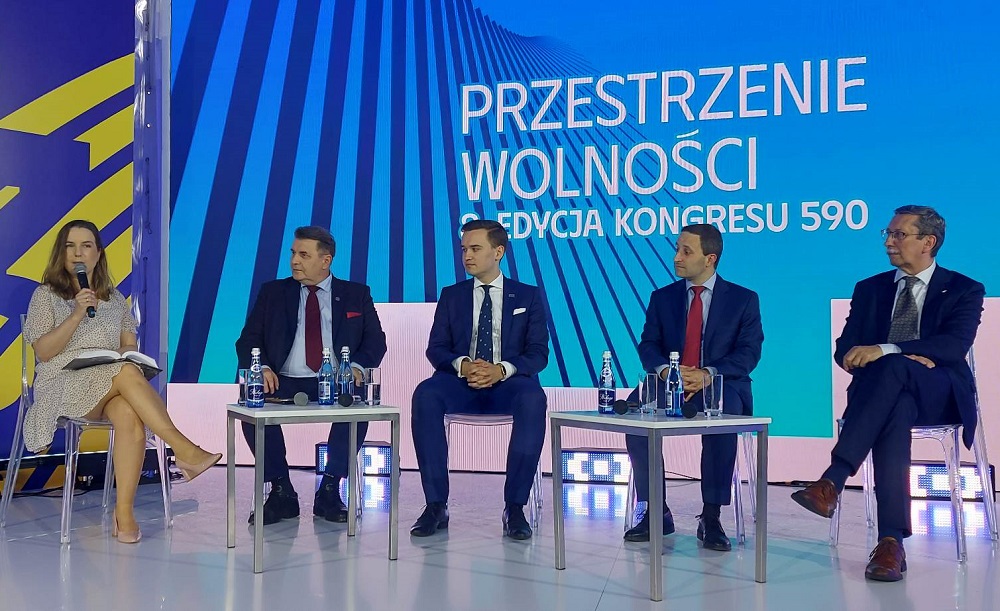
“We wanted to use the potential of Poles to tell the world about Poland” – said Jan Badowski, director of the Department of Cooperation with the Polish Diaspora and Poles Abroad, referring to people associated with the Animators of Poland’s Image in Europe (AWPE) project and all Poles who contribute in any way to promote Poland abroad. On June 22, director Badowski together with prof. Zbigniew Krysiak (Institute of Schuman’s Thought), prof. Jan Żaryn (Institute of National Thought Heritage) and Maurycy Mazur (Our Future Foundation) took part in the Congress590 panel dedicated to AWPE.
“How many times have we stood up for Christian civilization. This is our pride and historical merit, greater than the industrialization of Europe and its entire civilization. Because when Poland bled in its defense, the west, protected by our breasts, worked peacefully and grew rich. Let’s hope they remember this today ” – Marta Kowalczyk, leader of Animators of Poland’s Image in Europe quoted Bl. Stefan Wyszyński. Reminding that the AWPE project is carried out by the Institute of Schuman’s Thought, she encouraged people to join this deed. “We are at a moment in history when two tectonic plates, i.e. history as science and ideology, clashed and caused an earthquake” – she diagnosed the current situation, pointing out that history was infected with ideology and it is very difficult to fight for the truth.
“It seems to me that the key feature of people who take on this role – I analyze the personal profile, or their genesis and history, motivation – is the feature of a missionary” – said Prof. Zbigniew Krysiak, chairman of the Program Board of the Institute of Schuman’s Thought. “It is the trait of a missionary, someone who has Poland in his heart, that is a clue” – he pointed out. “Many of these people doubted or lost energy. Why such a missionary trait? Because the missionary trait is that no matter what the visible fruit is, he always goes forward” – he explained, adding that the missionary “is the one who does not want to see the fruit right away, like the priest who says that ‘I have to report here for work and God will bring the fruit'”. “Among those people who are involved in this work, I noticed this potential” – he emphasized. “If this mission really lives in you, people will quickly recognize it” – he noted.
In turn, Jan Badowski, director of the Department of Cooperation with the Polish Diaspora and Poles Abroad, when asked why there are so few people willing to promote Poland’s image abroad and how to overcome this problem, replied: “They must have contact with Poland, they must be proud of this that they are Poles, they must want to talk about it. “This is what we, as the Office of the Plenipotentiary I represent, set ourselves a task. The first, basic thing is that those people, who are already outside Poland will probably not return to it, and if they return, which is very important to us only in a few years, or in a generation, so that they maintain their Polish identity, that they speak Polish, that they know Polish culture and tradition, and that they can come back later or testify about Poland outside. The second task is to build a good image of Poland. The third task that results from this, and which will be this effect, is what we will have as a country in the world, i.e. a good image among other countries and the respect of our neighbors” – he enumerated, pointing out that citizens, people identifying themselves as Poles are ambassadors of the Polish nation. He explained that “we wanted to use the potential of Poles to tell the world about Poland.”
Congress590 gathered many outstanding experts from around the world. This year’s 8th edition was held under the motto “Spaces of freedom”.
Anna Wiejak
